From Vials to Valium, Rijeka's JGL Pharmacy Museum Is a Delight
January 23, 2022 - Visiting the JGL Pharmacy Museum in Rijeka, a modern cabinet of curiosities where vintage tablet-making machines meet the latest technology and elegant design
Tucked away in the Old town in Rijeka is one of the city’s most unique collections to discover. Explore the hissstory of pharmacy, says the snake on the wall, nudging us towards the entrance. Fear not - the snake is here as a symbol of health, rejuvenation and medicine, the mascot of the JGL Pharmacy Museum.
The specialised museum presents the history of pharmacy in a global context with a focus on Croatia and Rijeka in particular. Opened in October 2020, it was founded by the Croatian pharmaceutical company Jadran-Galenski laboratorij d.d. (hence the JGL in the name), whose vision is for the museum to become a reference institution in research of pharmacy history and a tourist attraction in Rijeka.
Based on what we’ve seen, it’s definitely an attraction. Albeit small, the permanent exhibit is a modern cabinet of curiosities where vintage tablet-making machines and hundreds of tiny vials and test tubes meet the latest technology and elegant design.
A wonderful garden of health (hortus sanitatis) featuring medicinal and other herbs covers the wall and guides you to the entrance:
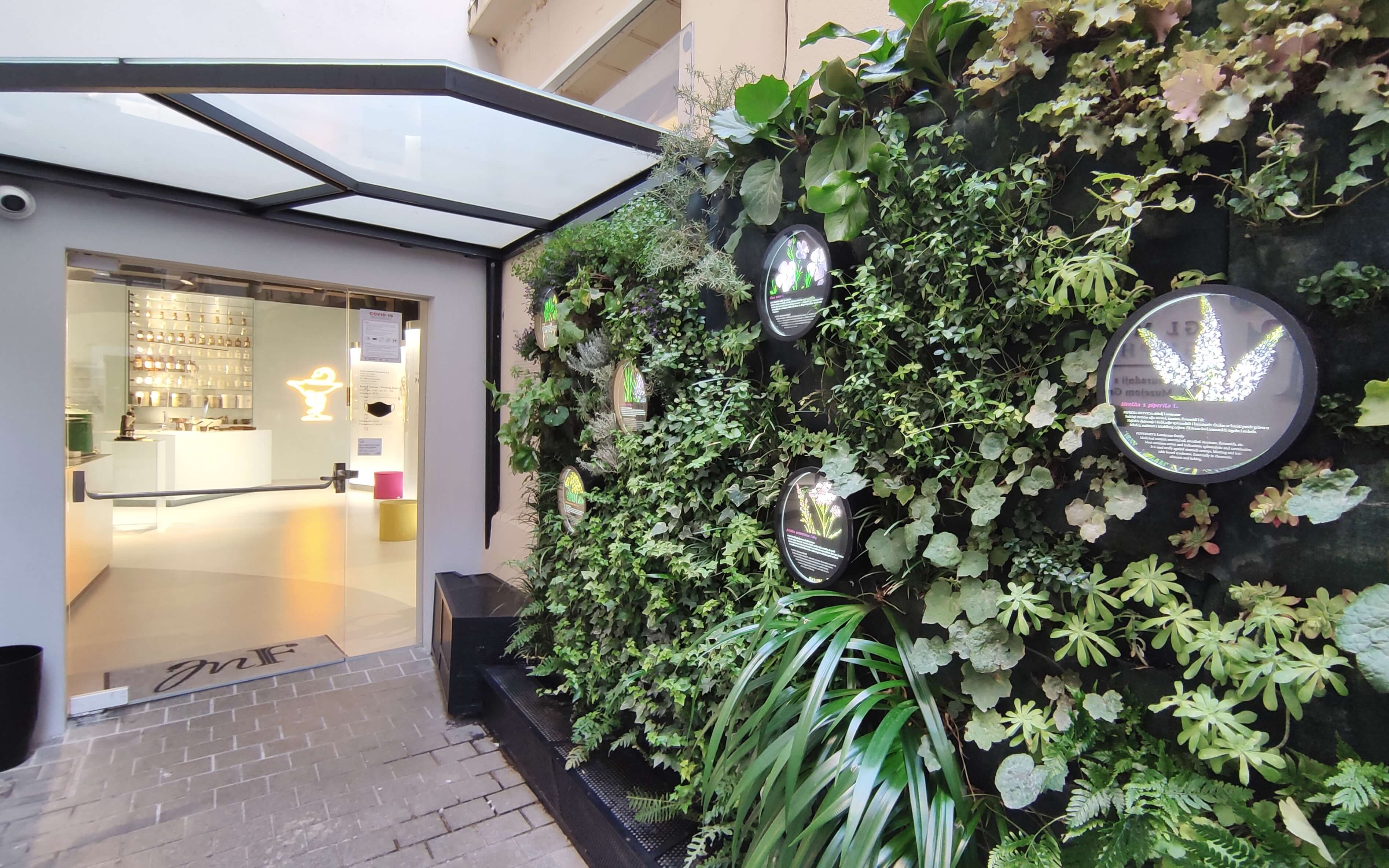
Inside, a sleek glass timeline snakes through the exhibition space and comes to life through AR, with distinguished individuals from the history of pharmacy telling their stories and teaching us a few interesting facts along the way.
You’d be perfectly fine just checking out the exhibits as the display is engaging enough as it is, but the AR points significantly add to the experience as they expand on the info presented on the panels, making the historical personalities more entertaining and lifelike - this will likely be a deciding factor if you’re visiting with kids. The AR guide is available in Croatian and English - pick up your tablet when purchasing tickets at the entrance.
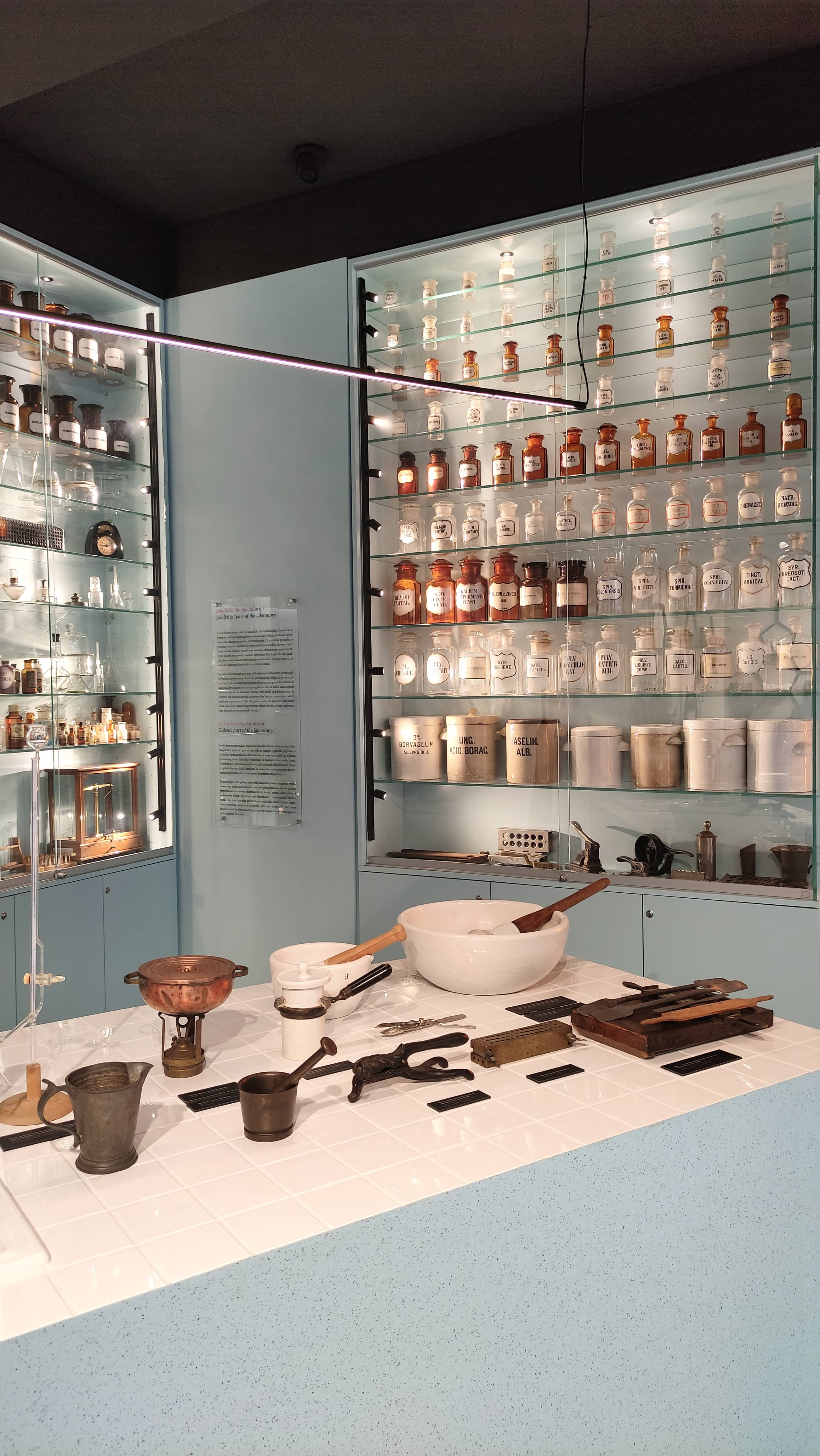
Here are a few things we learned to spark your curiosity:
- The inventor of diazepam was born in Opatija, Croatia! Chemist Leo Henryk Sternbach invented the medicine first marketed as Valium in the early 1960s, after he’d moved to the US where he worked for Hoffmann-La Roche. By the end of the 60s, Valium became the top-selling medicine in the US. Sternbach soon retired but didn’t rest on his laurels, instead going on to work at the lab and mentor students for another 30 years.
- The Dalmatian town of Trogir was home to the oldest pharmacy in Croatia; the establishment was specifically mentioned as a pharmacy in historical records as early as 1271!
- The first monastic pharmacy soon followed: the Friars Minor pharmacy in the Franciscan monastery in Dubrovnik was founded in 1317. The Croatian Ministry of Culture placed the Dubrovnik pharmacy on the list of intangible cultural heritage in 2019.
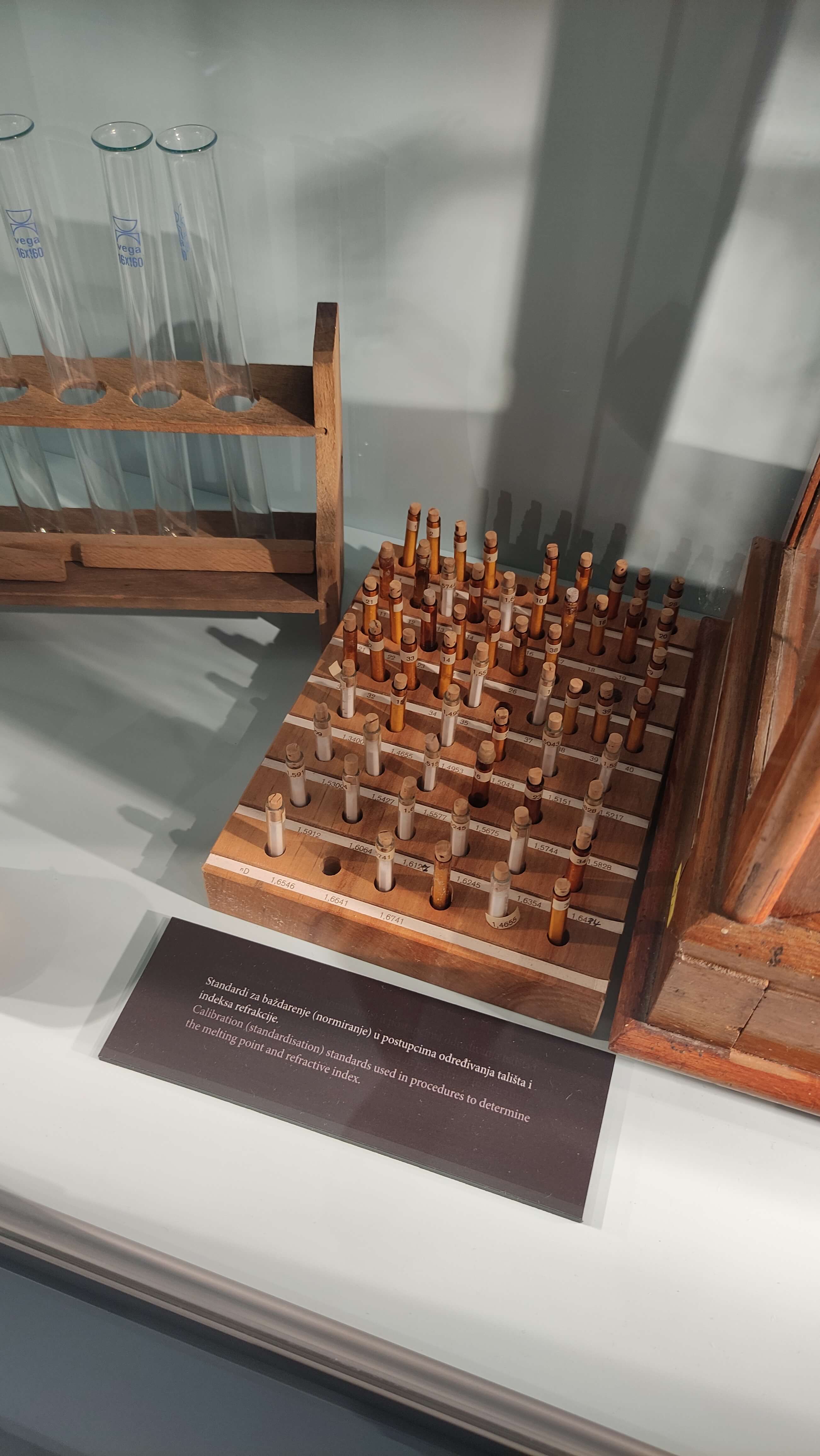
- Another nod to Dubrovnik as the first place in the world to introduce mandatory quarantine. In 1377, the Great Council of Dubrovnik passed a legislation that had all arrivals from areas ravaged by plague spend 30 days on Mrkan island before entering the city. (In comparison, today's isolation guidelines don't seem that harsh anymore.)
- Among the Nobel prize winners for chemistry are two Croats - a mentor and his protégé, Lavoslav Ružička and Vladimir Prelog. They were both involved in medicine development and won the Nobel prize in 1939 and 1975 respectively.
Hidden behind the timeline is the central exhibit, an impeccably recreated front-end space of a historic pharmacy (oficina) dating to the early 20th century.
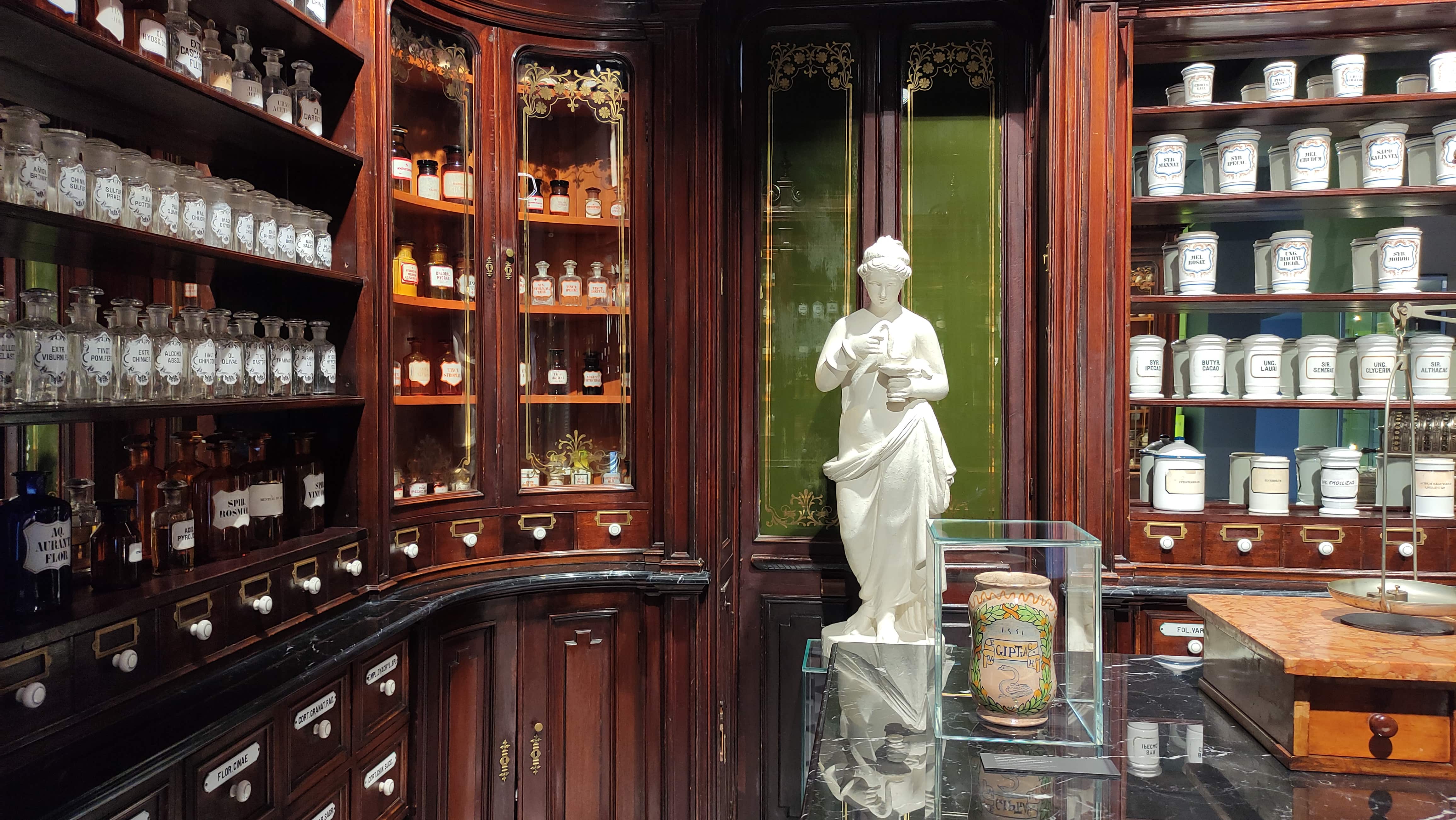
Front-end spaces were intended for the reception of patients, as well as preparation and dispensing of medicine. The one displayed here was in operation until 2019 in the pharmacy ‘Kolodvor’ near the railway station in Rijeka and comes complete with a pharmaceutical balance and a vintage cash register.
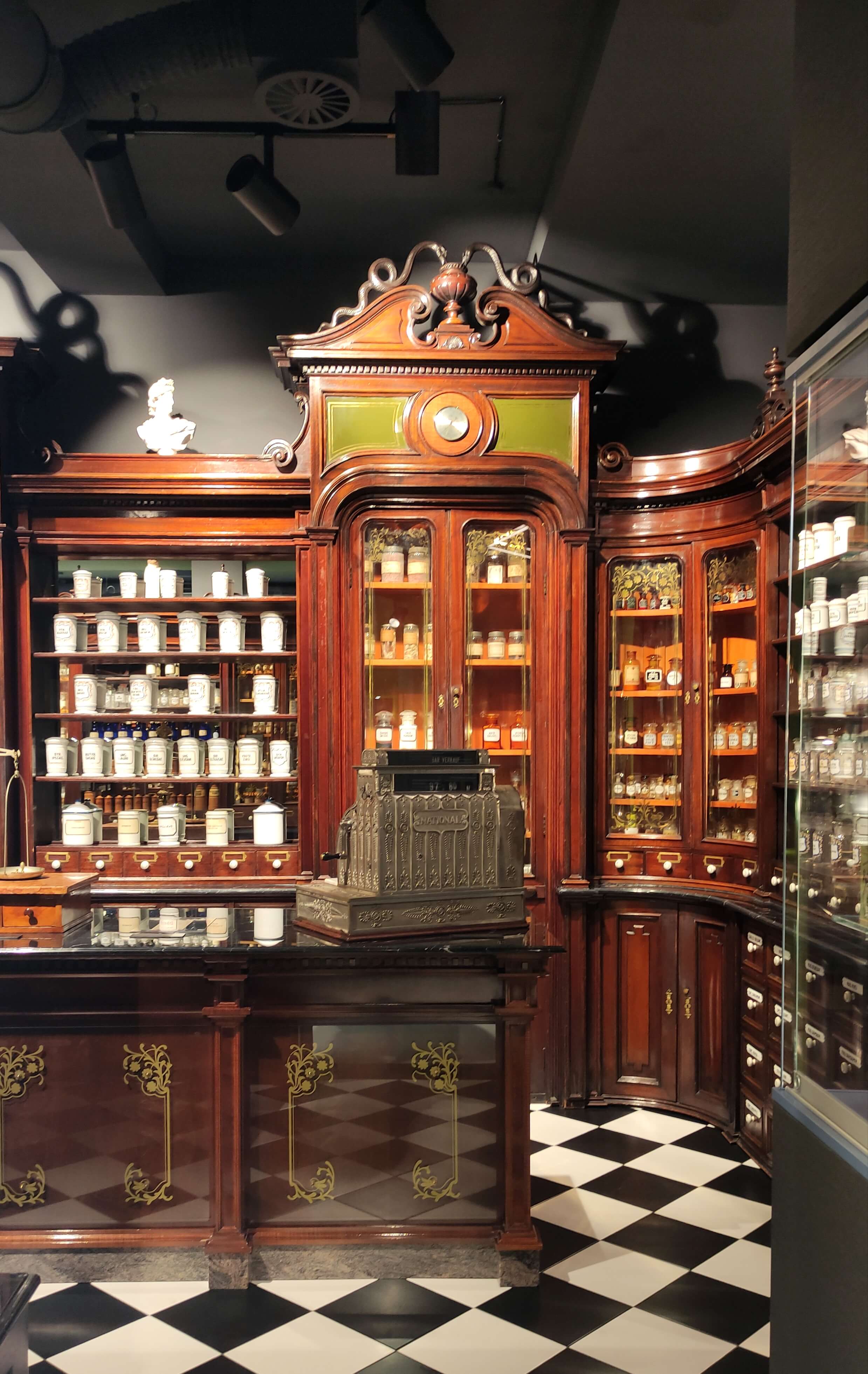
The exhibition gives us insight into local history as well, featuring two pharmaceutical companies from Rijeka, ‘Alga’ and ‘Ljekarna Jadran’. A pioneer not only in pharmaceuticals and cosmetics but in advertising as well, Alga was a marketing powerhouse and a household name in the interwar period. Their first product, named ‘Alga za masažu’ (massage algae), was made of natural extracts of native plants and was said to heal every malady from a toothache to influenza.
The ad below urges retailers to buy Alga in bulk and guarantees they’ll sell every single unit, or else they can return the unsold stock to the manufacturer:
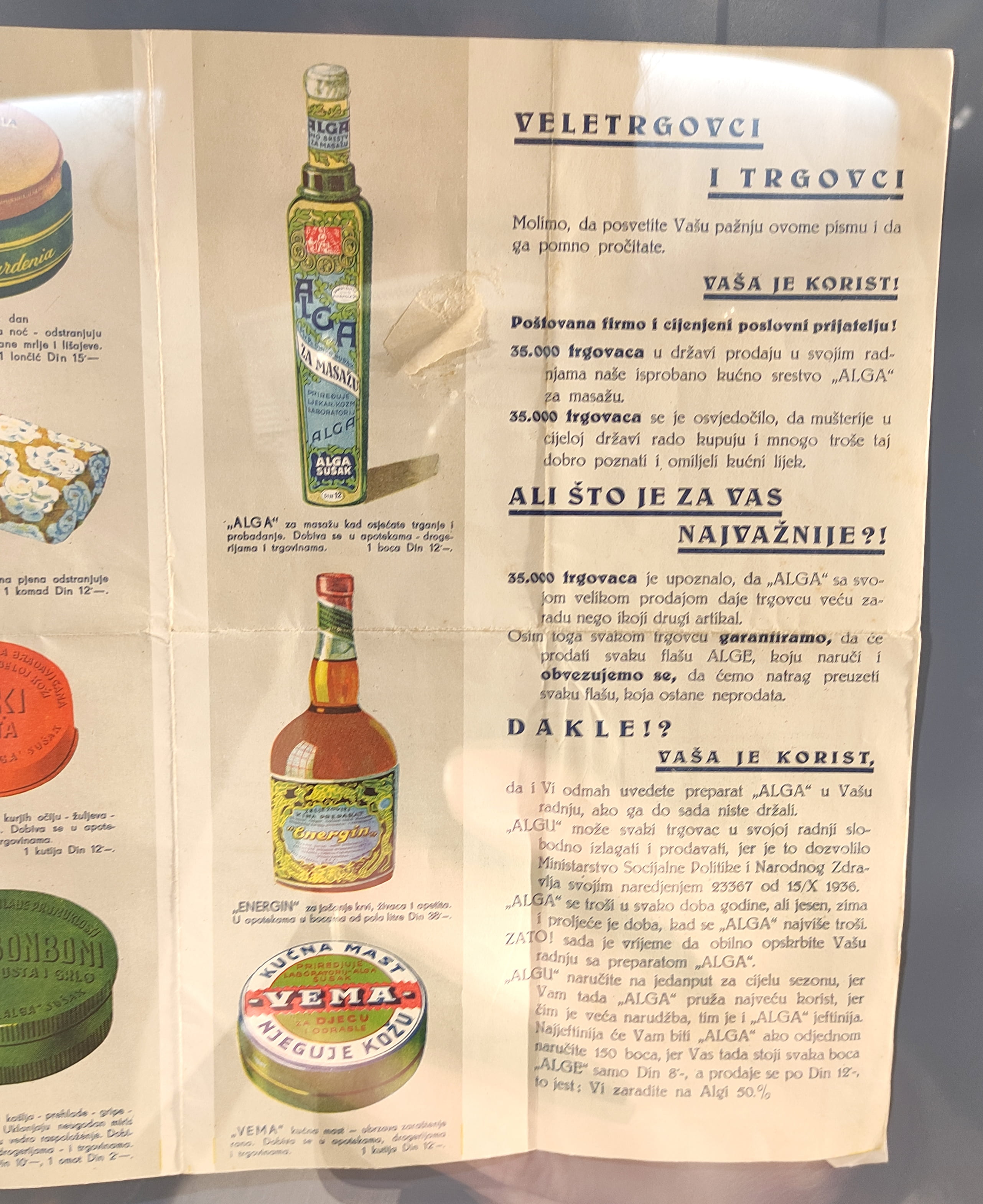
A section of the permanent exhibit is dedicated to medicinal herbs, including a modern twist on a herbarium and many cabinets and drawers to peek into:
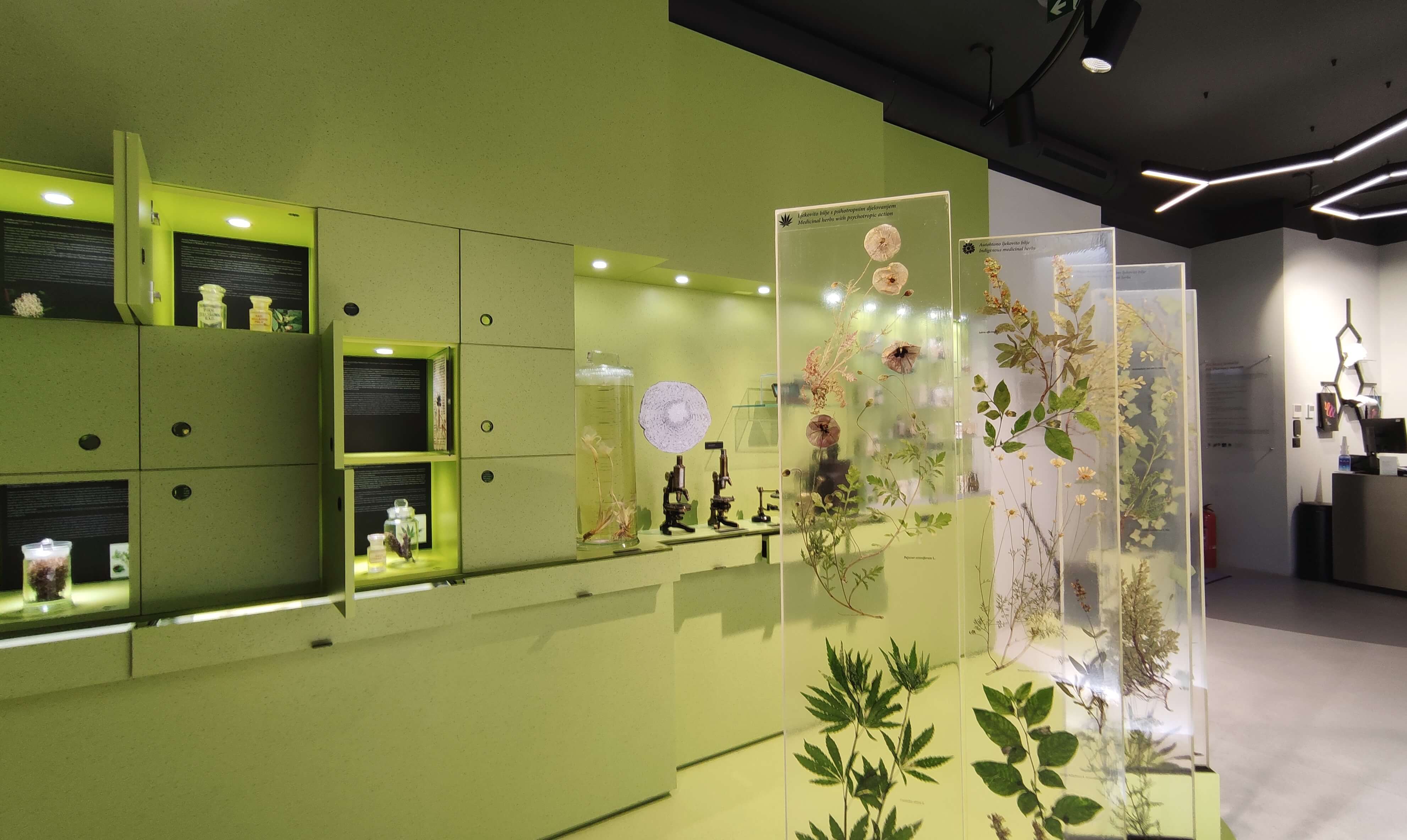
The entire display is superbly designed and allows the visitor to decide how much time and attention they want to dedicate to each exhibit; it doesn’t overwhelm with historical facts or scientific data, instead presenting information in an engaging and interactive way.
Indulge your obsession with historical curiosities and vintage bric-a-brac (just me?) and leave with a renewed appreciation for science. Overall, an excellent place to spend a Saturday afternoon.
Learn more about the JGL Pharmacy Museum on their website, and discover other attractions worth visiting in Rijeka in our guide here.
HBOR Representatives Visit Successful Rijeka Project Site
May the 23rd, 2021 - HBOR representatives have been busy touring a highly successful Rijeka project which it has supported with both capital investments and export activities for years.
As Poslovni Dnevnik writes, HBOR representatives, together with the leaders of JGL visited the works on the construction of the Integra 2020 project recently, they also toured its warehousing capacity, which includes three units - one for research and development, one for commercial production and one logistics centre.
"HBOR has been successfully supporting us in capital investments and export activities for many years, recognising us as a company with an international vision, and this is also an opportunity to thank them for our strong cooperation. After supporting the investments in JGL Pharma Valley, Integra 2020 was financed mostly from a long-term loan from HBOR in the amount of 280 million kuna,'' said Mislav Vucic, Executive Director of JGL.
The new investment project will enable the company to increase its capacity of sterile production by as much as 60 percent and significantly raise the development and technological competence of the company and its global competitiveness for further international growth in the planned horizon of one decade.
"JGL is one of the flagships of the Croatian economy, a company that has shown that Croatian businesses can be technological innovators and strong exporters to international markets, in an industry that requires extremely sophisticated products. I'm looking forward to HBOR being part of the growth and development of JGL. I'm convinced that we'll continue to cooperate with JGL and provide support for their new successes by lending and insuring exports,'' said Hrvoje Cuvalo, a member of the Management Board of HBOR, who was among the HBOR representatives visiting the site.
"The role of the Croatian Government and HBOR in terms of encouraging exporters and production companies with the aim of strengthening the competitiveness of the Croatian economy is extremely important. I'm proud that at JGL, despite the coronavirus crisis, are successfully continuing with investments that are an investment in our future, and with which we're striving for further steps in the global health market. It's especially important that the Integra 2020 project, through new research and development capacities, will enable even stronger networking with the scientific and teaching sector, as well as strengthening the platform for further growth of our country in the field of pharmaceutical and biotechnological development,'' concluded JGL's Ivo Usmiani.
KBC Rijeka - The construction of a new hospital for mothers and childern in Susak
The group of HBOR representatives also visited the Rijeka Clinical Hospital Centre and the construction of the new hospital in Susak, for which HBOR, in cooperation with the CEB and the EIB, approved a loan in the total amount of 750 million kuna.
At the Susak site of KBC Rijeka, work on the construction of a new Rijeka Hospital for mothers and children is in full swing, having started back in September 2019. The new complex will combine all hospital facilities currently located at Kantrida with the Clinic for Gynaecology and Obstetrics and new laboratory facilities.
This project is a significant step forward in relocating hospital units to a unique location, and patients will no longer have to travel up to five kilometres between different hospital facilities of the Rijeka Clinical Hospital.
“The construction of a new hospital in Rijeka is the largest investment from the government in the healthcare system since the founding of the Croatian state. Regardless of all of the difficulties, the works are being implemented more quickly than was initially planned, and the completion of the works is expected in the first half of 2022. If we receive the support of the government as we have done before, we'll be ready for the next investments in the second half of 2022,'' said Zeljko Plazonic, MD, of KBC Rijeka.
"The investment of KBC Rijeka in the construction of a new hospital in Susak will directly affect 600 thousand citizens who gravitate to the Rijeka hospital and hundreds of thousands of others who spend their holidays in this area. That's why I'm extremely glad to have the opportunity to participate in the improvement of healthcare infrastructure that will provide patients, medical and university staff of the Clinical Hospital Center Rijeka with greater comfort, an increased quality of services and numerous technological and clinical improvements,'' stated Hrvoje Cuvalo of HBOR.
"With the completion of the new hospital project, KBC Rijeka will receive a quality, modern and efficient healthcare service to be able to offer to the residents of the three counties who use the services of the Rijeka hospital," added prof. dr. sc. Alen Ruzic, the director of KBC Rijeka.
For more, follow our dedicated business section.


